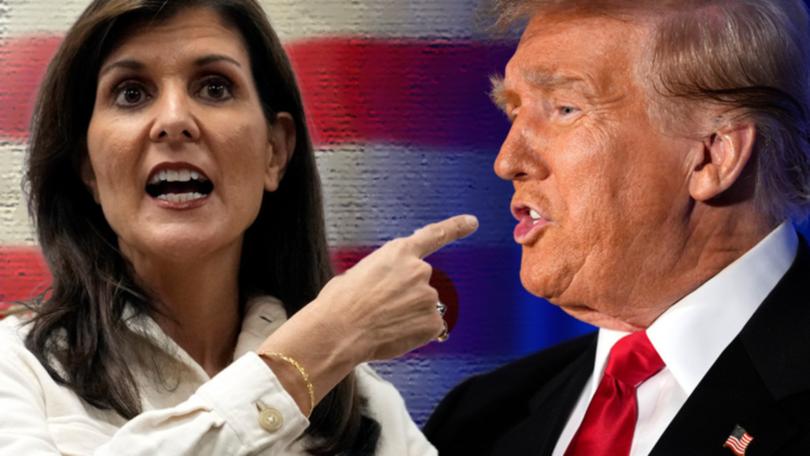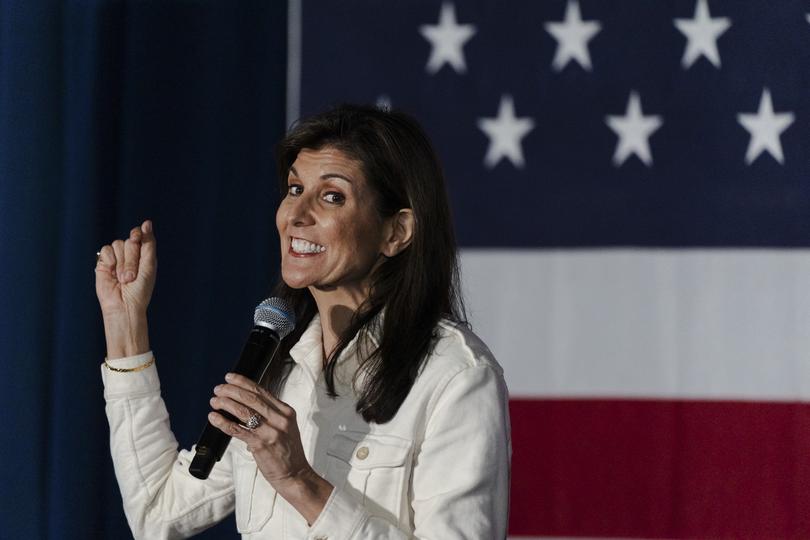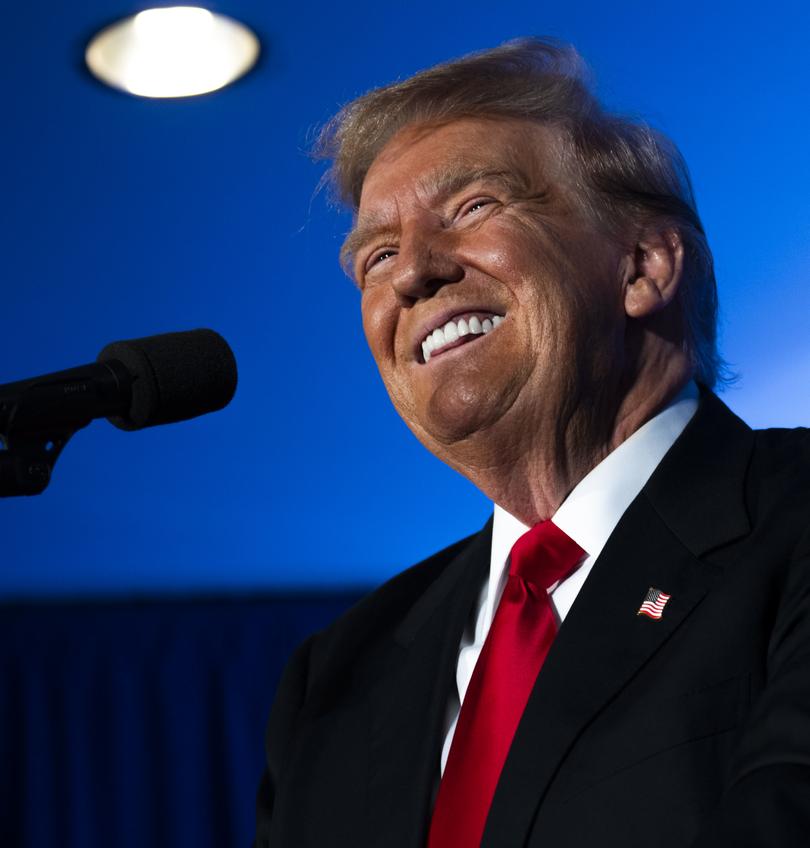Nikki Haley puts Iowa disappointment behind her and ramps up her case against Trump in New Hampshire
New Hampshire’s a new battleground for Trump’s former UN Ambassador, who aims to frame her old boss as as an old man past his prime - just like Joe Biden.

Nikki Haley might have come in third in the Iowa caucuses, but as she campaigns in New Hampshire for its first-in-the-nation primary next week, her attention is squarely focused on only one rival: Donald Trump.
Haley, a former South Carolina governor who served as U.S. ambassador to the United Nations under Trump, has begun fine-tuning her argument against her former boss, trying out new jabs and unleashing a new attack ad. She has also stepped up her efforts to frame herself as Trump’s top rival, announcing that she would no longer participate in primary debates that don’t include him.
In recent remarks and in a new television ad, Haley paints Trump and President Joe Biden as two sides of the same coin: politicians past their prime who are unable to put forth a vision for the country’s future because they are “consumed by the past, by investigations, by grievances.”
Sign up to The Nightly's newsletters.
Get the first look at the digital newspaper, curated daily stories and breaking headlines delivered to your inbox.
By continuing you agree to our Terms and Privacy Policy.At a campaign rally Wednesday in Rochester, New Hampshire, she fended off Trump’s attacks on her immigration record, warned voters not to believe his ads against her and reminded them that it was Trump who had wanted to raise the age for Social Security eligibility and had once proposed increasing the gas tax.
“Those are things he needs to answer for. Oh, that’s right! He won’t get on the debate stage,” she swiped.
In Bretton Woods, New Hampshire, where she held her first rally after the Iowa caucuses, Haley said Tuesday she had voted for Trump twice and was “proud to serve in his administration” before delving into her familiar critique that, whether fairly or not, “chaos follows” the former president. But she also took a few more acidic digs.
“The majority of Americans think that having two 80-year-olds running for president is not what they want,” she said to a smattering of applause at the Omni Mount Washington Resort.
To be sure, Haley has not entirely abandoned her measured approach to Trump. On Thursday, she told voters she would not attack him personally — “people either want me to hate Trump or love Trump” — saying people are tired of that kind of politics. “I just tell it on policy,” she said.
She has not flatly rejected running as his vice president and does not talk about his criminal charges. In a CNN interview, Haley said that she had not “paid attention to his cases” when the host, Dana Bash, asked how she felt about her party’s front-runner being held liable for sexual abuse. Bash was referring to the defamation lawsuit filed by writer E. Jean Carroll, which is now on trial.
“This one I haven’t looked at,” Haley contended, “but if he is found guilty, he needs to pay the price.” (Trump has already been found liable in a civil trial, and a jury is only weighing how much he has to pay.)

Although she was slow to make inroads in Iowa, she has been heavily competing in New Hampshire from the start, buoyed by a recent influx of cash from her allied super PAC and the prospect of a more independent and college-educated electorate. On Wednesday, her chief opponent for second place, Florida Gov. Ron DeSantis, announced he would be relocating the majority of his staff to South Carolina, her home turf, while largely pulling back on events in New Hampshire.
DeSantis is aiming to take advantage in her own backyard before that late-February primary, where the Republican base is more in line with the largely white and Christian evangelical voters found in Iowa. Haley, for her part, has long contended that she would perform well enough in Iowa and New Hampshire to catapult her campaign into a showdown with Trump in South Carolina.
But Trump continues to hold leads in both states. It was in South Carolina where Trump solidified his path to the Republican nomination seven years ago. And a new poll from New Hampshire’s St. Anselm College shows that while Haley is handily winning over New Hampshire independents, Trump’s hold on Republican voters is so overwhelming that he leads by double digits, 52 per cent to 38 per cent.

Nevertheless, he has responded in kind to Haley, seeking to fully dispense with his nearest rivals after a blowout victory in Iowa.
At his rally in a country club in Atkinson, New Hampshire, this week, he attacked her track record as governor and portrayed her as out of touch and not Republican. His campaign has sent out a slew of emails with subject lines including: “Nikki Haley Loves China,” “Nikki Haley Is Funded By Democrats, Wall Street, & Globalists” and “Nikki Haley Is Weak On Immigration And Opposes A Border Wall.”
On Wednesday in Portsmouth, New Hampshire, he further polished his attacks on Haley, pointing to her past positions on taxes, Social Security and Medicare and condemned her for being supported by liberals and moderates.
Citing a poll that showed that nearly half of Haley’s supporters in Iowa said they’d vote for Biden over Trump, the former president said, “Now, that means that she’s like a Democrat. I actually think she might go to the Democratic Party.”
Later, he criticized her as being too weak on border security, a signature issue that has animated Trump’s presidential campaigns. As he accused her of supporting open borders, he told hundreds in New Hampshire, “I don’t know that she’s a Democrat, but she’s very close. She’s far too close for you.”
This article originally appeared in The New York Times.
© 2024 The New York Times Company
Originally published on The New York Times
